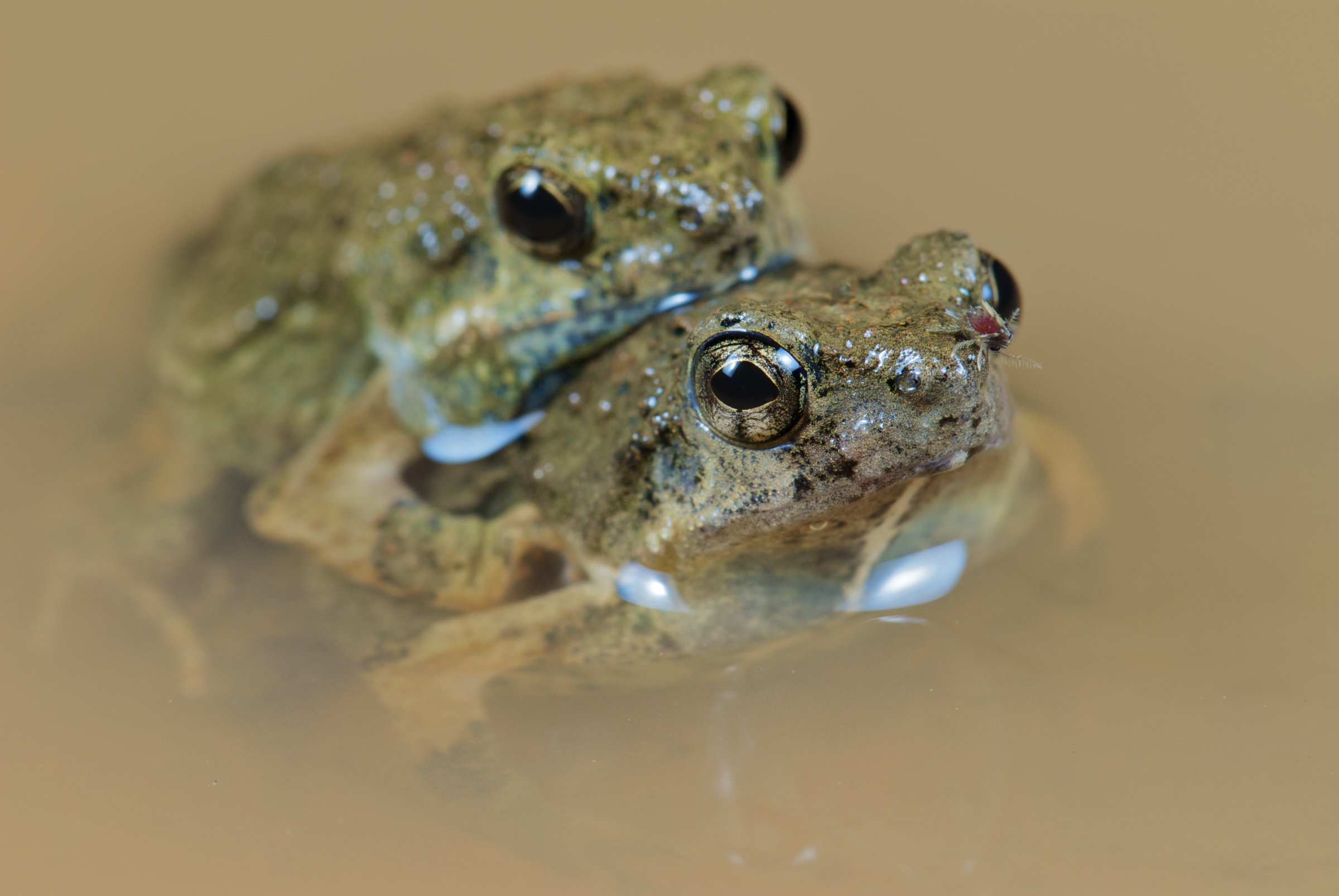
Give a female frog two potential mating options—an attractive frog and an unattractive frog—and she’ll pick the attractive frog nearly every time. But all bets are off if you throw in a third, less attractive frog, new research shows.
Researchers evaluated mating calls from male túngara frog for the new study, published this week in the journal Science. The finding adds to a growing body of research suggesting that mating choices don’t follow rational expectations.
Male frogs produce a sound to advertise themselves to potential mates. Female frogs typically responded best to longer calls made at a lower frequency when choosing between two male options. But when researchers added a third option to the mix that performed worse on both metrics, the female frog would often choose the intermediate option.
Study author Amanda Lea, a researcher at the University of Texas at Austin, likened the scenario, known as the “decoy effect,” to the way in which a consumer might behave when purchasing a new car. A customer may opt to buy a cheap car with poor fuel efficiency instead of a more expensive car with good fuel efficiency. But the costumer might reconsider when a salesmen presents a third option that is the most expensive and also has good fuel efficiency. The customer won’t choose the third option, but he might instead choose the second most expensive.
Read more Bees Are Losing Their Habitat Because of Climate Change
“Whatever you choose as the most important trait to begin with should also be the most important trait if you introduce a third option,” Lea said. “For some reason, adding a third option leads you to evaluate the first two and reverse your preferences.”
But the unexpected result doesn’t necessarily mean that the frogs made the wrong choice. Additional analysis might reveal why picking the third option may in fact be better for a frog, according to Lea.
“In some in cases irrational decisions can be looked at as the better way to have gone,” Lea said. “Going with your intuition is often better. It just depends on how you weigh your costs and benefits.”
More Must-Reads From TIME
- The 100 Most Influential People of 2024
- The Revolution of Yulia Navalnaya
- 6 Compliments That Land Every Time
- What's the Deal With the Bitcoin Halving?
- If You're Dating Right Now , You're Brave: Column
- The AI That Could Heal a Divided Internet
- Fallout Is a Brilliant Model for the Future of Video Game Adaptations
- Want Weekly Recs on What to Watch, Read, and More? Sign Up for Worth Your Time
Write to Justin Worland at justin.worland@time.com